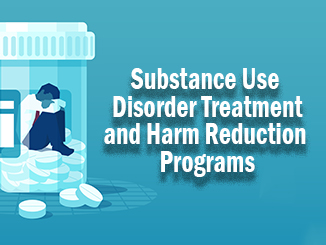
Large Bipartisan Majorities Favor Congress Funding Substance Abuse Treatment for All Who Want It
Large majorities of both Republicans and Democrats support federal funding to expand substance use disorder treatment programs to ensure that all Americans who need and want treatment are able to get it–what is sometimes called “treatment on demand.”
A representative sample of 2,607 American voters were given a detailed presentation of numerous Congressional reforms that would address the impact of substance use disorders and the opioid crisis. All of the proposed reforms to increase funding for treatment programs received support from large bipartisan majorities:
- High Priority for the Government to Ensure Treatment is Fully Available: When asked, “how high a priority should it be for the government to ensure that every person who needs and wants treatment for their substance use disorder is able to get it,” 80% said a very or somewhat high priority, including 67% of Republicans and 94% of Democrats.
- $10 Billion to Expand Treatment to All Who Want It: 75% supported spending $10 billion to fund treatment for all those who want it but are not able to get it, by expanding the number of treatment centers, training and hiring more treatment professionals, and subsidizing treatment for low-income earners, as well as funding more research. 58% of Republicans and 92% of Democrats were in favor.
- Increasing Access to Effective Prison Treatment Programs: 74% favored the proposal to fund the expansion of treatment programs in prisons and to improve them so their treatment is based on the most current evidence, including 61% of Republicans and 89% of Democrats.
Providing funds to cities and states to give police officers the training and tools to divert non-violent criminal offenders–when they have a substance use disorder–into treatment rather than charge them with a crime, was favored by 74%. Majorities of Republicans (58%) and Democrats (90%) were in favor.
Six-in-ten favored funding harm reduction programs which provide overdose-reversal drugs (naloxone), kits for testing whether drugs have been laced with fentanyl, and clean needles. Four-in-five Democrats, six-in-ten independents, and just over one-in-three Republicans were in favor.
In the innovative public consultation survey by the Program for Public Consultation (PPC) at the University of Maryland, respondents were given relevant background information on substance use disorder in general and on each proposal. They then evaluated a series of strongly stated arguments for and against each proposal before making their final recommendation. The survey was reviewed by experts from different sides to assure that the briefings were accurate and balanced and that the arguments were the strongest ones being made.
PPC Director Steven Kull comments, “Americans have come to a bipartisan consensus that the Federal government should ensure that substance abuse treatment be provided to all who want it–what is often called ‘treatment on demand.’” He adds, “This is likely driven by the opioid epidemic and rising overdose rates. Among 18-45 year-olds, overdoses are now the leading cause of deaths.”
The proposals were drawn from several prominent pieces of legislation in Congress–the Comprehensive Addiction Resources Emergency Act, the Residential Substance Use Disorder Treatment Act, and the Comprehensive Addiction and Recovery Act 3.0.
The survey was fielded June 13 – 29, 2022 online with a national probability-based sample of 2,607 registered voters provided by Nielsen Scarborough from its larger sample, which is recruited by telephone and mail from a random sample of households. There is a margin of error of +/- 1.9%.
Report: Americans on Substance Use Disorder Treatment and Harm Reduction Programs (PDF): https://publicconsultation.org/wp-content/uploads/2022/08/Substance_Use_Report_0822.pdf
Questionnaire with Frequencies (PDF):
https://publicconsultation.org/wp-content/uploads/2022/08/SubstanceUse-HarmReduction-Quaire-Footnotes-083022.pdf

Be the first to comment